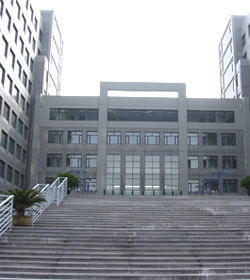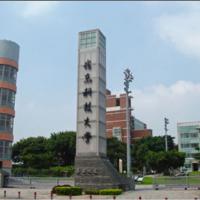2016年12月英语四级阅读仔细阅读练习及答案(十五)
2016-08-09 11:21:44am
Questions 56 to 60 are based on the following passage.
Arctic Ocean ice may hold trillions of small pieces of plastic and other synthetic trash,and they are being released into the world’s oceans as global warming melts the polar cap,researchers say,Though the finding is surprising and worrying,the possible harm to marine life is so far unknown,the authors concluded.called micro plastics,the pollutants come mostly from debris that has broken apart,as well as from cosmetics and fibers released from washing clothes,according to the Study,which was published in the iournA. Earth’s Future and first reported by Science magazine.
At current melting trends.more than l trillion pieces 5 millimeters or smaller could wind up in the oceans during the coming decade.the authors estimate.The concentration of plastic debris is 1,000 times greater than that floating in the so.called Great Pacific Garbage Patch.The researchers based their findings on core samples of ice taken during polar expeditions in 2005 and 2010.
Rayon was the most colninon synthetic material discovered—54%.Though rayon is not a plastic(it’s made from wood),the authors included itbecause it is a manmade semi.synthetic that makes up a significant proportion of synthetic microparticles found in the marine environment.Rayon is used in cigarette filters,clothing and personal hygiene products.Polyester(聚酯)was the next most common pollutant found in the ice(21%),followed by nylon(16%),polypropylene(聚丙烯)(3%)and polystyrene,acrylic and polyethylene (2%each).
The authors cA.led the ice trapa major historic globA. sink of man.made particulates.and said their findingsgo some way to help clarify one of the most puzzling aspects of current understanding on the quantities of plastic debris reported in the oceans.As Science points out,288 million tons of plastics were produced in 2012.
Micro plastics garbage has aso been found on the shores of southernmost Chile,so the authors said it’s time to investigate the planet’s other polar region.WHile multiyear sea ice makes up a smaller proportion of aunual sea ice cover in the Southem Ocean.and perenniA. sea ice cover around Antarctica is following different trends,our finding indicate the importance of sampling ice from the Antarctic to see if it too contains micro plastics,they write.
56.According to the passage.what are mainly calledmicro plastics?
A.The pollutants come mostly from debris.
B.The pollutants come mostly from fibers.
C.The pollutants come mostly from cosmetics.
D.The pollutants come mostly from daily supplies.
57.What does the phrasewind uPmean in Para.2?
A.putan endto
B.screwup
C.sweep across
D.roll up
58.Why does the author includerayonin.though it is not a plastic?
A.Because it is a significant manmade semi.synthetic discovered in the ocean.
B.Because it is a major natural semi.synthetic appearing in the marine.
C.Because it is a minor manmade synthetic dug out in the marine.
D.Because it is a significant natural synthetic explored in the marine.
59.What can we infer from the ice trapa major historic global sink of mail-made particulates?
A.The historic sink should be attributed to man-made particulates.
B.People on a worldwide scA.e have reaped what they had sown.
C.The ice trap is of major historic meaning on the globA. context.
D.The major historic globA. sink is derived from the ice melting.
60.What’s the best title of this passage?
A.Rayon was the most common synthetic in the ocean.
B.It’s time to research the planet’s other polar region.
C.Trillions of plastic pieces found in the Arctic ice.
D.Trillions of plastic pieces will wind up in the ocean.
答案D C A B C
以上就是查字典大学网为同学们带来的“2016年12月英语四级阅读仔细阅读练习及答案(十五)”内容了,希望看完能够带给大家一些力量,对同学的生活有所启示,更多内容在这里,请继续关注我们。
推荐文章
猜你喜欢
附近的人在看
推荐阅读
拓展阅读
院校推荐
猜你喜欢
2020年国家公务员考试申论积累:习近平送给奋斗者的八个名句
2020年国家公务员考试新闻学可以报哪些岗位?
因为户籍问题
2020年国家公务员考试申论热点:养老服务业
2020年国家公务员考试如何选好职位?四步搞定
终身禁考!公务员考试过程中千万别犯这些错误
盘点90个最易混用词辨析,2020年国考加油!
2020年国家公务员考试最新时政热点:图解垃圾分类
2020年国家公务员考试申论热点:实现科技自立
国考复习数量关系做累了?来点文学常识放松一下吧
快来记!公务员考试50个高频易错成语集锦
申论范文:践行群众路线
2020年国考申论范文评析:小角色大担当
2020年国家公务员考试物流管理可以报哪些岗位?
2020年国家公务员考试申论热点:义务教育改革
决定了,就不要改变
重庆科技学院2020年硕士学位研究生招生专业目录
重庆科技学院2020年硕士研究生招生简章



